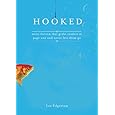I've been doing a lot of editing lately, on the first (now second) draft of
Thunderstruck and on some non-fiction articles and picture books, as well.
First, start at the macro level. Why put your effort into line edits when you have to turn around and cut the whole scene because it doesn't work, after all? Wasted time and effort (if good practice).
I'll post more about the macro approach to revisions when we get to R, but for today, here are some things to consider when editing your work.
Show, don't tell Hopefully everyone knows this by now, but it can be easy to tell without realizing you're doing so. Did you
tell the reader a character is angry, sad, puzzled, happy, irritated? If so, you're explaining too much. Their words and actions should get their emotions across.
Use beats in place of speaker attributions I've been reading Roald Dahl's The BFG to my son lately, and each and every line of dialogue has a speaker attribution (Sophie said, the BFG said). I find it distracting and usually end up not reading them aloud. My son doesn't ask "who's talking?" He can tell from the words and the exchange who it is.
Read your dialogue. Can you tell who's talking without the attribution? If you have more than two people, maybe not. But if you have only two people, and if those two people have distinct voices, it will be easy for the reader to follow along without the distraction of attributions.
Instead of attributions, use beats. Do the characters DO anything during the conversation? Not scratching their heads (unless they have lice) or looking around, but movements that provide some punch and a bit of insight into their emotional state. You don't want to overuse beats, since they can detract from the tension of a scene, but beats are a useful component of dialogue.
Read aloud I always read aloud when I'm editing. Why? Because sometimes sentences that seemed okay on the page sound terrible when read aloud. The rhythm of the sentence is off, the word choices poor. In my case, the sentences may be out of order, and reading aloud helps me figure out how they would flow better.
And if you want your work published, you may be asked to read it some day. You don't want to get tongue-tied reading your own work.
Check for white space Flip through the manuscript. Is there a lot of white space, or do you have page after page of description? White space indicates action; a story that will move along quickly, and will therefore be of greater interest to readers.
If you're looking for a good resource to help with editing, I highly recommend
Self-Editing for Fiction Writers, by Renni Browne and Dave King. They include lots of great examples and exercises to help you put their advice into practice.
How do you approach editing?




























